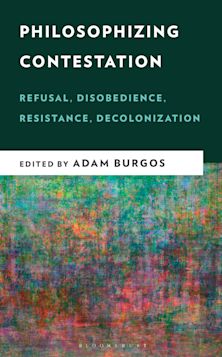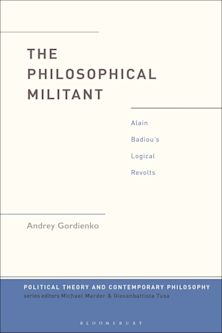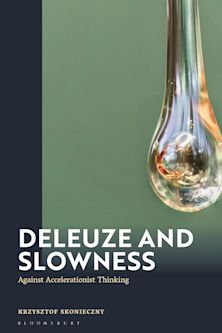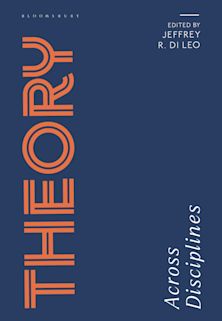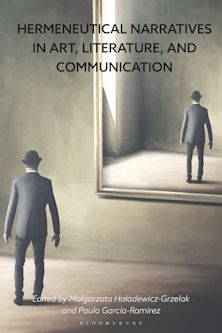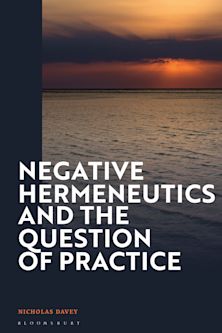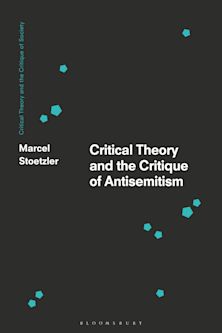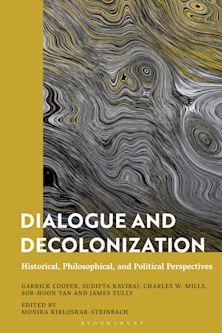- Home
- ACADEMIC
- Philosophy
- Critical Theory
- Negative Dialectics and Event
Negative Dialectics and Event
Nonidentity, Culture, and the Historical Adequacy of Consciousness
Negative Dialectics and Event
Nonidentity, Culture, and the Historical Adequacy of Consciousness
You must sign in to add this item to your wishlist. Please sign in or create an account
Description
History is replete with false and unfulfilled promises, as well as singular acts of courage, resilience, and ingenuity. These episodes have led to significant changes in the way people think and act in the world or have set the stage for such transformations in the form of rational expectations in theory and the hopeful anticipations of dialectical imagination.
Negative Dialectics and Event: Nonidentity, Culture, and the Historical Adequacy of Consciousness revisits some of Theodor W. Adorno's most influential writings and theoretical interventions to argue not only that his philosophy is uniquely suited to bring such events into sharp relief and reflect on their entailments but also that an effective historical consciousness today would be a consciousness awake to the events that interpellate and shape it into existence.
More broadly, Vangelis Giannakakis presents a compelling argument in support of the view that the critical theory developed by the first generation of the Frankfurt School still has much to offer in terms of both cultivating insights into contemporary human experience and building resistance against states of affairs that impede human flourishing and happiness.
Table of Contents
Acknowledgments
Permissions
Prologue
Part One: Philosophy and the Concept of Nonidentity
I. Negative Dialectics and the Historical Adequacy of Consciousness
Part Two: Politics and the Notion of Event
II. Adorno, Badiou and the Politics of Breaking Out
III. May '68 and Adorno, Theoretical Refractions in the Time of Revolt
Part Three: Society, Cultural Criticism and Historical Consciousness
IV. The Relevance of the Theory of Pseudo-Culture
V. The Erosion of Historical Consciousness and the New Old Barbarism
Epilogue
Bibliography
Index
About the author
Product details
| Published | Nov 04 2021 |
|---|---|
| Format | Ebook (PDF) |
| Edition | 1st |
| Extent | 186 |
| ISBN | 9781978798649 |
| Imprint | Lexington Books |
| Series | Continental Philosophy and the History of Thought |
| Publisher | Bloomsbury Publishing |
About the contributors
Reviews
-
The originality of the book lies not only in the critical re-reading of [...] lesser-studied works [by Adorno] but also in the way Giannakakis juxtaposes them with the philosophy of the contemporary French thinker Alain Badiou, in particular his theory of the 'event'. Giannakakis' central argument is that a combined reading of Adorno and Badiou – two philosophers originating from ostensibly divergent traditions – can yield a deeper understanding of certain pressing problems in contemporary capitalist society and perhaps even gesture toward possible solutions.
Kristian Lyndorff Paris, Marx & Philosophy Review of Books
-
Can dialectical thought still carve our late capitalist reality at its joints? In this bold, lucid, and searching book, Vangelis Giannakakis revisits the writings of Theodor W. Adorno to make a compelling case for negative dialectics as a vital intellectual resource in the face of our 'new old barbarism.' He does so by recalling, from different angles, the imperative to think together negation and novelty-and by bringing Adorno into an unexpected if fruitful dialogue with the philosophy of Alain Badiou. An important intervention for all those persuaded that the first axiom of a critical, emancipatory philosophy is: society must not be defended.
Alberto Toscano, Simon Fraser University and Goldsmiths, University of London
-
What is the connection between a critical, historical experience and the concept of the event? In his superb and penetrating study of Adorno and Badiou, Vangelis Giannakakis articulates a compelling and novel response to this question. Through illuminating explorations of the concepts of experience, the nonidentical, the shudder and the event, Giannakakis outlines a new path for Critical Theory in the 21st Century. This fine book is itself an event, a breakout from totality into undiminished experience.
Alastair Morgan, University of Manchester

ONLINE RESOURCES
Bloomsbury Collections
This book is available on Bloomsbury Collections where your library has access.











